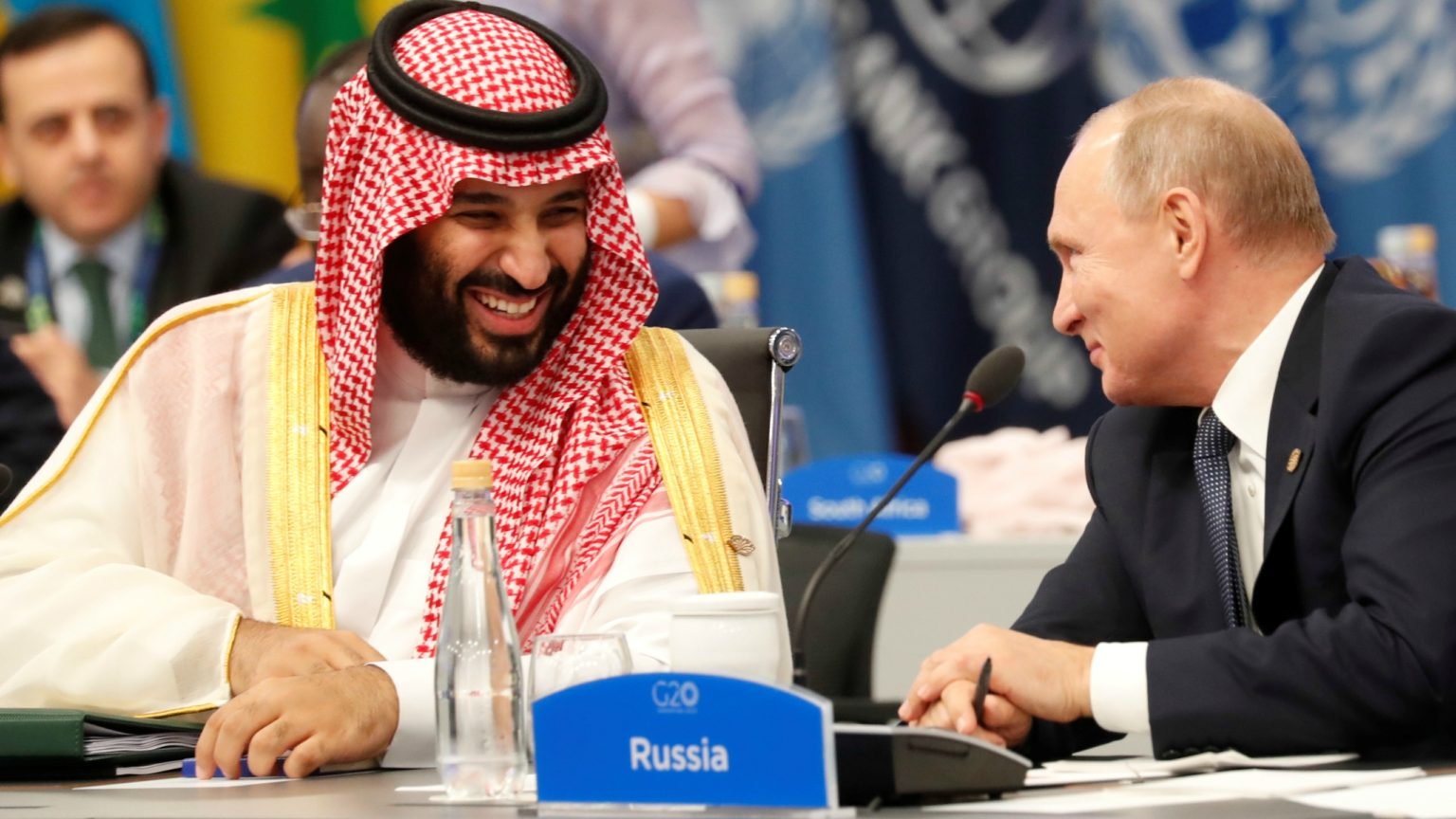the Saudi-leadership blamed Russia for the instability on the energy market accusing it of launching an oil war.
Saudi Arabia’s official SPA news agency reported the following (source):
The Saudi Minister of Foreign Affairs His Highness Prince Faisal bin Farhan Al Saud said that a statement attributed by media to President Vladimir Putin of the Russian Federation, claimed that one of the reasons for the decline in oil prices was the Kingdom’s withdrawal from the deal of OPEC + and that the kingdom was planning to get rid of shale oil producers.
The Minister affirmed that what was mentioned is fully devoid of truth and that the withdrawal of the kingdom from the agreement is not correct, but that Russia was the one that refused the agreement, while the Kingdom and 22 other countries were trying to persuade Russia to make further cuts and extend the agreement, yet Russia has not agreed.
He also stressed that the Kingdom’s stance on shale oil production is known as it is an important part of energy sources and that the Kingdom is also seeking to reach more production cuts and achieve balance in the oil market, which is in the interest of shale oil producers, contrary to what was issued by Russia and its desire to keep prices low to affect shale oil.
The Minister of Foreign Affairs expressed surprise at the distortion of facts, hoping that Russia would take the right decisions in the urgent meeting on which the Kingdom called yesterday to be held for OPEC + and the group of other countries so as to reach a fair agreement that restores the desired balance of oil markets in order not to subject energy markets to risks again.
In the light of Saudi Arabia’s comments, it’s interesting to recall the chain of events that led to the current crisis. SF already covered it in the analytsis entitled “Saudi-Initiated All-Out Oil War Could Lead To Collapse Of Kingdom Itself” on March 10:
“It all began on March 8 when Riyadh cut its April pricing for crude sales to Asia by $4-$6 a barrel and to the U.S. by $7 a barrel. The Kingdom expanded the discount for its flagship Arab Light crude to refiners in northwest Europe by $8 a barrel offering it at $10.25 a barrel under the Brent benchmark. In comparison, Russia’s Urals crude trades at a discount of about $2 a barrel under Brent. These actions became an attack at the ability of Russia to sell crude in Europe. The Russian ruble immediately plummeted almost 10% falling to its lowest level in more than four years.
Another side that suffered from Saudi actions is Iran. The Islamic country is facing a strong US sanctions pressure and often selling its oil via complex schemes and with notable discounts already.
Saudi Arabia is planning to increase its output above 10 million barrel per day. Currently, it pumps 9.7 million barrels per day, but has the capacity to ramp up to 12.5 million barrels per day. According to OPEC and Saudi sources of The Wall Street Journal, Riyadh’s actions are part of an “aggressive campaign” against Moscow.
The formal pretext of this campaign became the inability of the OPEC+ (a meeting of representatives of member states of the Organization of the Petroleum Exporting Countries and non-OPEC members) to extend output agreements.
Saudi Arabia was seeking up to 1.5 million b/d in further oil production cuts, but this proposal was rejected by Russia. After the inability to reach the new OPEC+ deal, Saudi Arabia became the frist and only power that took aggressive actions on the market. However, it is hard to imagine that Saudi Arabia would go for such an escalation without at least an order or approval from Washington.”
There is no secret in the fact that Russia is the side that did not agree to further cuts of the oil production during the March events. However, Saudi Arabia became the first and only country that started agressive actions on the oil market aiming to damage interests of the other parties.
Such a blatant lie demonstrates the madness of the current Saudi leadership, which is scared by their weak position amid the ongoing crisis developments around the world. The Saudi military is losing the war in Yemen and the Houthis (Ansar Allah) are conducting operations inside the Kingdom itself. The global economy is in the crisis that reduces the demand for energy resources undermining the only real source of income of a majority of the Saudi elites. At the same time, the internal political instability is pushing the Kingdom to the brink of a deep political crisis that may lead to the collapse of the current regime. So, Riyadh is making fierce attempts to cover own failures and agressive actions under the public lies.



